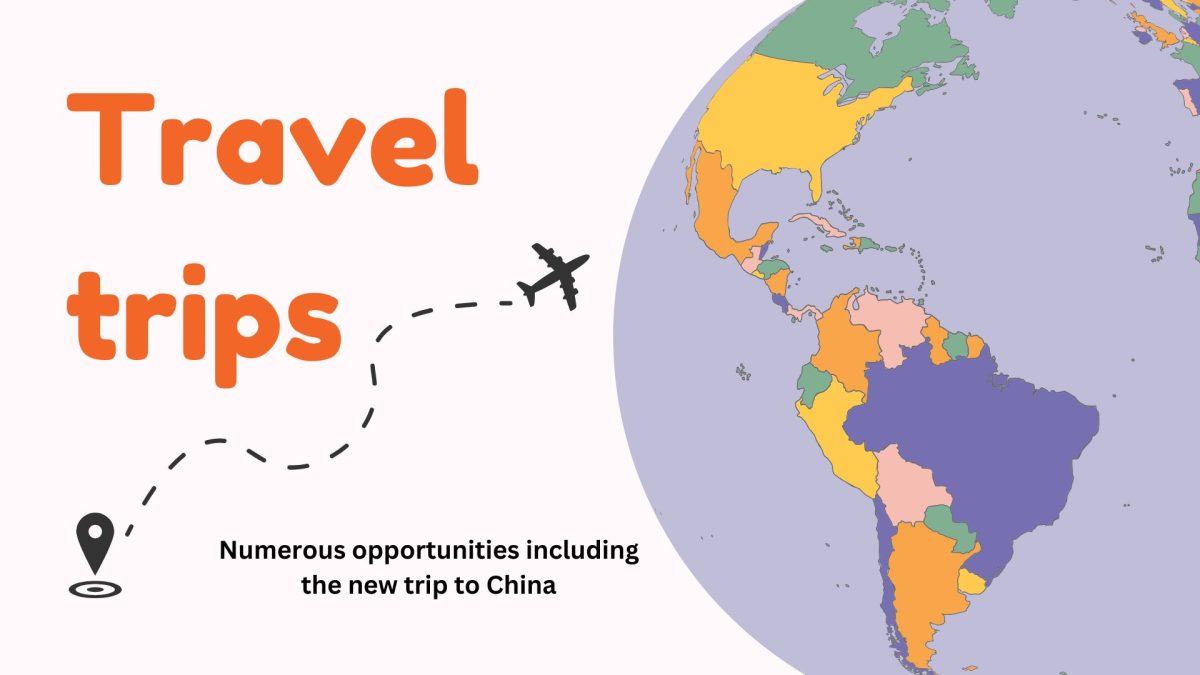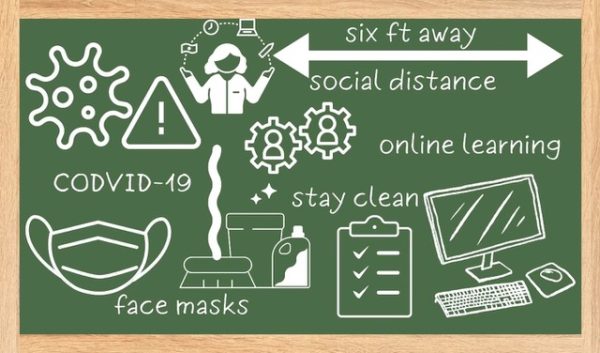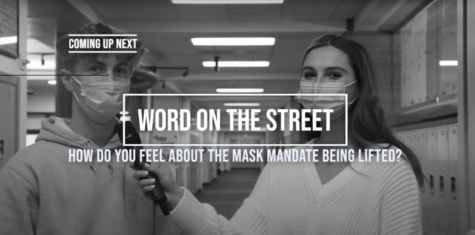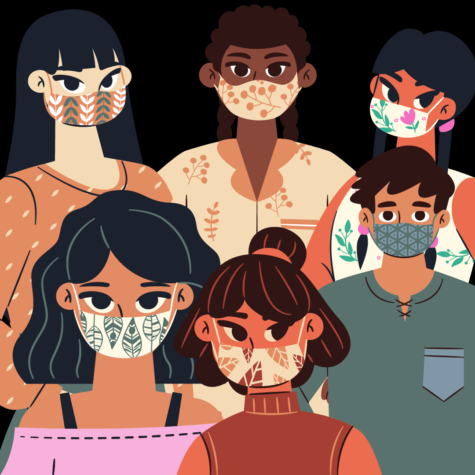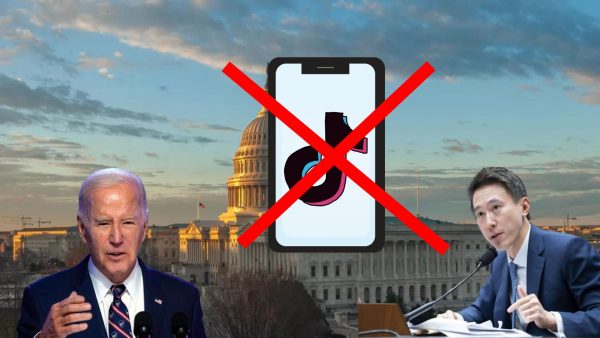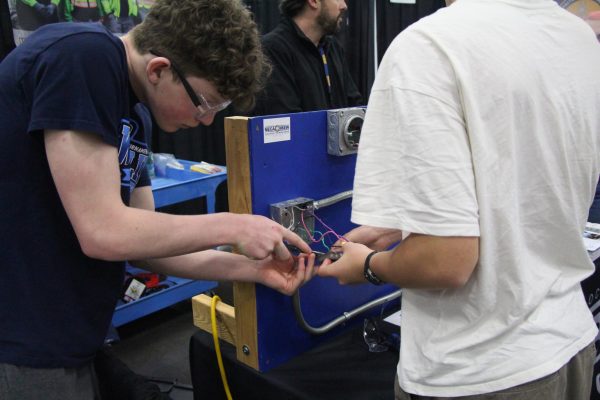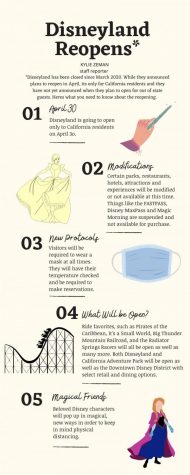Vaccine Tug-Of-War
With the way vaccines were distributed, it feels like everyone is reaching out to get one. Image created by Logan Winder
The controversy surrounding COVID-19 never seems to end. Lockdown restrictions, masks, social gatherings, the list goes on and on when it comes to things people are angry about. If we follow this pattern, it should be no surprise that the vaccine for COVID-19 is also a point of contention.
When vaccines were first being distributed to individual states in early Jan., Gov. Kate Brown made the decision to have educators vaccinated first. All of the sudden, the elderly and immunocompromised were left without a vaccine. A huge uproar ensued, demanding that Brown reverse the decision. She declined and doubled down on her decision, stating she wanted schools to open by Feb. 15th.
Now that we are well into April, we have the luxury of hindsight to analyze the situation and determine if Brown was correct in her decision. Personally, I think Brown made the wrong decision and put people at risk for no good reason.
To break this situation down, we have to first look at Brown’s reasoning as to why teachers needed to be pushed to the front of the line.
One of the main reasons cited was that students are falling behind on their learning. This much is true. Though the extent of this claim may be overblown, it is indeed factual that students are making smaller learning gains than they did pre-pandemic. Standardized tests from 2019 when compared with those from 2020 show a decrease in learning gains, specifically in math.
Another major reason for wanting to push to get teachers vaccinated is to try and prevent further damage from being done to our economy. A study published in September of 2020 theorized that the school closure would result in future losses of 14-28 billion dollars, which is based on the reasoning that students affected by this pandemic are poised to make 3% less in lifetime income.
Finally, student mental health. Though it is tough to find mental health info for K-12, we can look to college students to get an idea of how students might be fairing. 20% of college students said that their mental health had worsened after the start of the pandemic. Furthermore, I don’t see it very hard to understand that students who have had a huge portion of their lives stripped away might be struggling with their mental health
These are some very valid reasons to want to have teachers vaccinated first, and it’s easy to see where Brown is coming from. At the same time though, the reasons not to get teachers vaccinated first are somewhat overwhelming, and it starts with reopening schools.
Just reopening schools is not going to be enough to repair the damage done to students’ education. In the same study that looked at possible economic losses in the future, the authors came to the conclusion that just reopening schools would not be enough to avoid these losses. Losses that are based on students missing education. Students would not be able to make up for the educational and economic losses without massive changes to our school structure in America. Ironically, we’re going to have massive changes to the school structure, but not in a useful way.
With the current reopening proposal, students are essentially receiving the same type of education they’ve been receiving online, just in a classroom. This raises the question though, if going back to class does nothing to change the education students are receiving, why even go back? Yes, you can have a face to face which makes it quicker to get help, but it’s not like it was impossible to have a one on one conversation with the teacher. We have a working system that allows students and teachers to continue schooling without the threat of the virus. Sure, it’s not perfect, but that doesn’t mean it is failing to work. Going back into class under the current program would lead to the same education program, but now with the added threat of the virus.
The virus is the other major reason teachers shouldn’t have been thrown to the front of the line. Adults who are 65 and older account for 80% of COVID-19 deaths, which means they are the highest risk group and should be vaccinated as soon as possible. Per the Oregon guidelines, Those 70 and older were allowed to get the vaccine, but not those under 70. This a questionable distinction to make, as all above 65 are classified in the same risk category. If instead we first vaccinated the entire group of high risk citizens, we would be protecting those who need it most. Teachers cover a very diverse age range, and allowing those 65 and older to get the vaccine first would make sure teachers at high risk are vaccinated. At this point in time, the timeline for the vaccine distribution has advanced exponentially, and even frontline workers are now eligible for the vaccine. Back when this issue was first arising though, this accelerated distribution was not going on.
The biggest distinction to make here is that one of these choices is optional and oneisn’t. Going back to school and vaccinating teachers first is optional. We have a working system, and based on the evidence it is clear that going back really won’t have any huge benefits. Elderly people don’t have any options to work with. They can do their best to stay safe, but at the end of the day they still have to do things that require them to be at risk of getting the virus. Older people are much more likely to be hospitalized or die due to COVID-19. Teachers must endure this same threat too, but if all elderly were vaccinated first, teachers at risk would also be covered.
At the end of the day, it simply boils down to what we value more. The lives of the elderly or the education of our youth. The way I see it though, the scales are not of equal weight. Children are still getting an education without having to go back to in-person school, and teachers are staying employed. The elderly are not so lucky. Without the vaccine, they are left without options to effectively work around the virus and its dangerous effects. The elderly should have had their vaccines first, to protect those who need it the most.
Your donation will support the student journalists of West Linn High School. Your contribution will allow us to continue to produce quality content by purchasing equipment, software, and continuing to host our website on School Newspapers Online (SNO).

Logan Winder is the opinion section editor, and a regular contributor to the Amplifier newspaper. This being his 3rd year on staff, he is excited to be...


























![Game, set, and match. Corbin Atchley, sophomore, high fives Sanam Sidhu, freshman, after a rally with other club members. “I just joined [the club],” Sidhu said. “[I heard about it] on Instagram, they always post about it, I’ve been wanting to come. My parents used to play [net sports] too and they taught us, and then I learned from my brother.”](https://wlhsnow.com/wp-content/uploads/2024/03/MG_7715-2-1200x800.jpg)





![The teams prepare to start another play with just a few minutes left in the first half. The Lions were in the lead at halftime with a score of 27-0. At half time, the team went back to the locker rooms. “[We ate] orange slices,” Malos said. “[Then] our team came out and got the win.”](https://wlhsnow.com/wp-content/uploads/2023/10/IMG_2385-1200x800.jpg)





![At the bottom of the third inning, the Lions are still scoreless. Rowe stands at home plate, preparing to bat, while Vandenbrink stands off to the side as the next batter up. Despite having the bases loaded, the team was unable to score any runs. “It’s just the beginning of the season. We’re just going to be playing out best by June, [and] that’s where champions are,” Rowe said.](https://wlhsnow.com/wp-content/uploads/2024/03/IMG_3077-1200x900.jpg)







